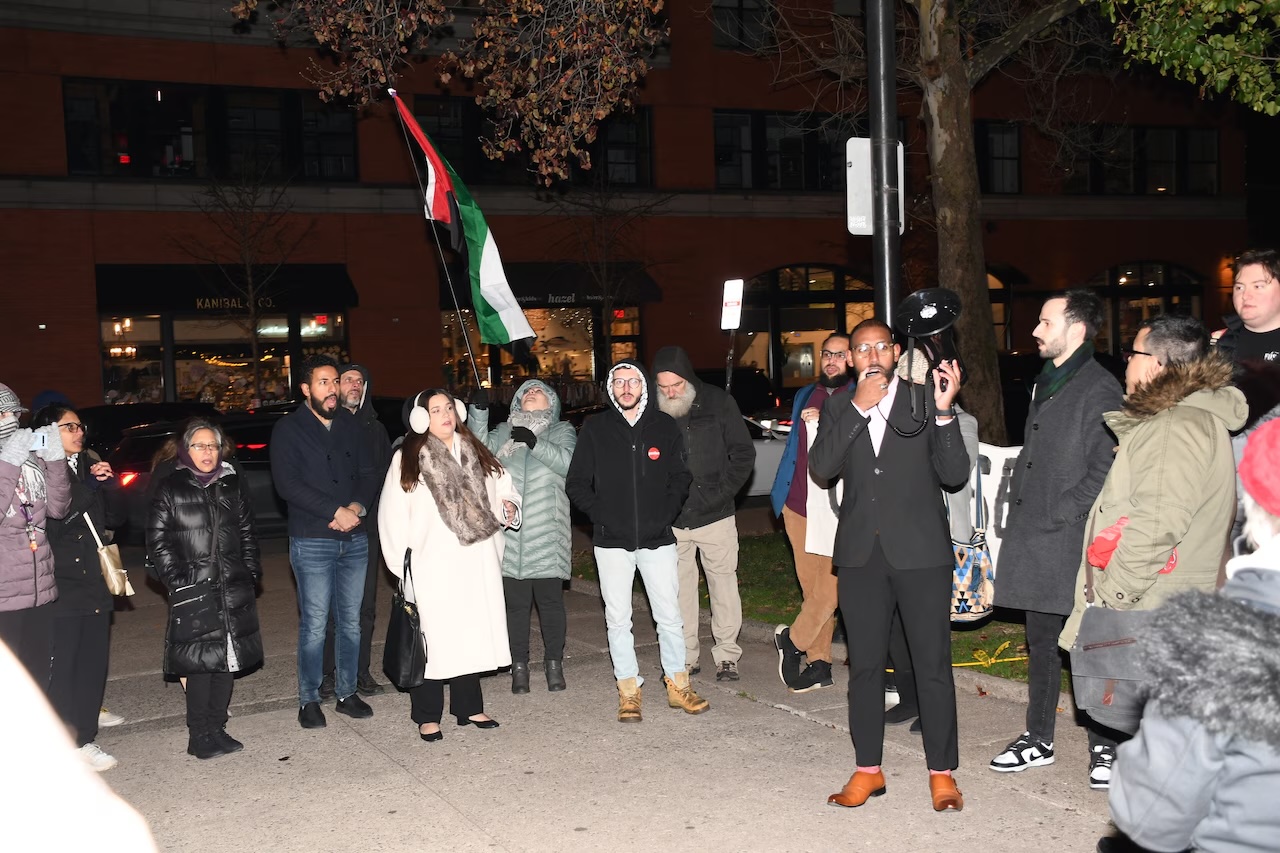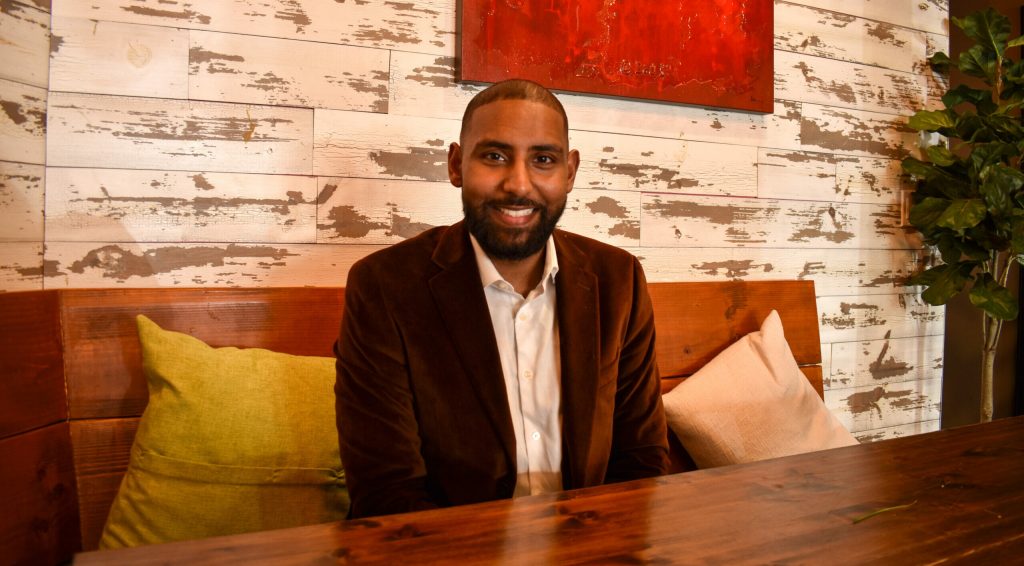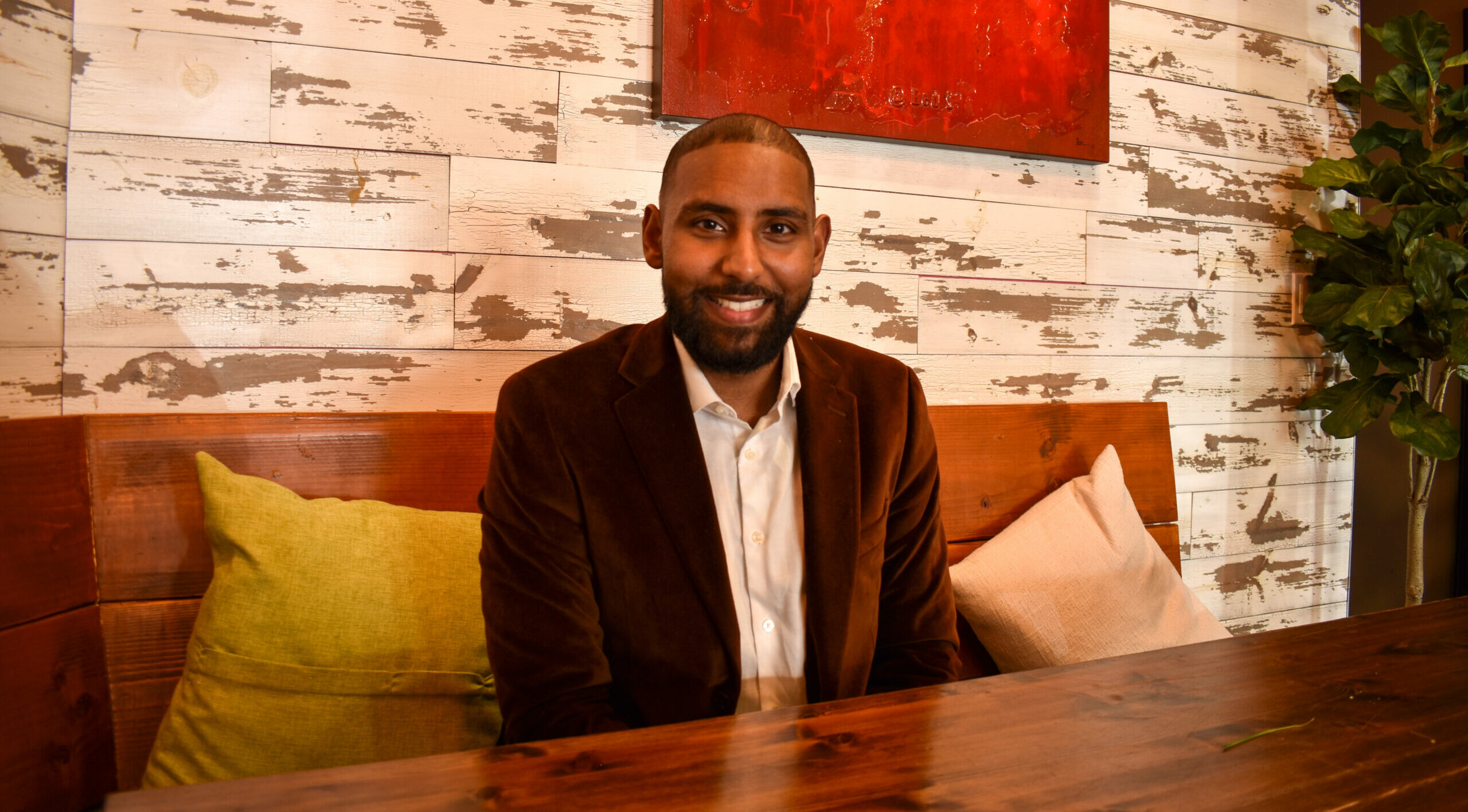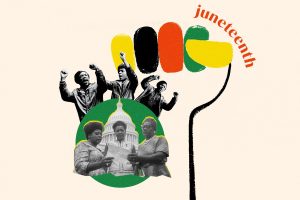Photo by co-founder Neidy Gutierrez.
When Mussab Ali was going to school, he never drank water from the fountains; not even after gym class on a hot summer day.
For over a decade, Ali, his classmates and thousands of other Jersey City students had to rely on bottled water because their fountains were shut down for having lead in its pipes. But 15 years later, as part of his position on the Jersey City Board of Education, Ali helped reopen the fountains at 14 different schools; the project was completed at the end of 2022.
Ali is now campaigning to become Jersey City’s next mayor in 2025.
The 27-year-old made history by joining the Jersey City Board of Education (JCBOE) at 20 years old and then becoming the BOE’s president at just 23. But to Ali, age doesn’t mean much in this race. What gives him edge is the fact that he relates more to “everyday people” in Jersey City.
“This city is super, super diverse. [But] we’ve only ever elected one mayor of color… Every single mayor talks about how we’re the most diverse city in America. Every politician talks about how we’re the most diverse city in America. But I think our leadership needs to reflect that,” Ali told Slice of Culture.
“I think [it should be] someone who’s been a successful product of the system where I’ve gone through the public schools, went away [to Harvard Law School], could have had any opportunity in the world, but came back. I think that is a testament to young people in this city to say, you can pursue whatever you want, but public service is so important…”
“You can be the people who graduate and serve our people. You don’t have to be someone who’s from out of town to come here and leave. You can be growing up in this community, in our system and come back full circle to be the person in leadership.”
He joins the mayoral race with Hudson County Commissioner Bill O’Dea, former New Jersey Governor Jim McGreevey and soon-to-be-announced Jersey City Council President Joyce Watterman.
Ali’s American Dream
Ali was born in Pakistan and moved to Jersey City with his family in September of 2000 when he was three years old. His mother worked as an educator in New York City while his father was a postal worker.
Mostly growing up in the Journal Square area–like the Heights and West Side–he said he didn’t realize how lucky he was to have “so much” diversity, noting that in Jersey City schools “everyone’s a minority” so he never felt different.

Ali attended Public Schools #23 for pre-kindergarten and #6 for elementary school. From there, he moved up to Academy One for middle school and McNair Academic for high school. He completed his undergraduate studies at Rutgers-Newark before earning his master’s in global affairs at Tsinghua University in Beijing, China. Then, just last year, Ali earned his Doctor of Law from Harvard Law School.
“It wasn’t until I went to law school where I started to realize, oh, the world is a lot different than Jersey City,” Ali said.
“I felt like I was definitely a minority, like definitely otherized. But I think having grown up in a place where I never felt like a minority, I still felt like I could voice my opinions… Some of my friends that had always grown up in these environments where they felt like they had to be careful about their opinions and how they express themselves, but for me, I felt like even though I looked different or prayed differently, my opinions are still just as valid. And my classmates validated that.”
During his time at Harvard, Ali was elected as student body co-president. In this role, he was responsible for reaching out to the university’s deans to “negotiate student representation in university discourse and policy making.”
Before earning his law degree in 2023, Ali had other encounters.
In January 2021, when Ali was chosen as the JCBOE’s president, he became both the first Muslim elected to public office and the youngest elected official in Jersey City. This win came from the votes of his fellow board members, whom he had served with since 2017–while he was still studying at Rutgers-Newark.
But just a month in, Ali announced he was diagnosed with Stage 4 Hodgkin Lymphoma, which is a form of cancer that affects the body’s germ-fighting immune system. He served as JCBOE president for the year, setting agendas that included eliminating student lunch debt, increasing teacher salaries and raising minimum wage, to name a few. And then ultimately, in August 2021, he announced that he beat cancer, and was now in remission.
By December 2021, after defeating the rigorous disease, Ali declined to seek re-election so he could focus on himself.
“In a weird way, it feels like public office and public service have just been a huge part of my identity, being involved since I was a teenager,” Ali told The Jersey Journal at the time. “I don’t think there is ever going to be a part of me that is going to be able to let it all go and not think about what is happening and what things we could better our city.”
A Jersey City ‘For All’
Though Ali was no longer the JCBOE president, he continued advocating on the behalf of schools and quality of life in his hometown and overseeing the Ali Leadership Institute, which he co-founded to “address a lack of leadership opportunities for urban youth but also get them involved in the civic engagement process.”
Then, in April of this year, he took the next step and announced his candidacy for Jersey City mayor, telling Slice of Culture it’s time.
“It’s time for our younger generation to step up. I’ve often felt like our generation doesn’t have time to wait. When we think about climate change, when we think about all the issues that are happening around the world, I think that you need people in leadership who understand how much is at stake for young people,” he added.
“We are the ones who are gonna inherit this world where there’s so many decisions that are being made that are not with our best interest in mind… I couldn’t stay on the sidelines anymore and I had to get involved.”
Ali spoke on a number of topics including gentrification; supporting local small businesses; and investing in civic life in all areas of the city.



Young Voices Are The Most Important
While Ali has a number of accomplishments under his belt at just 27 years old, he added that sometimes he feels overlooked or judged because of his age.
“I think especially as a young person, people don’t take you seriously,” Ali said.
“… I remember the superintendent telling me, ‘I’ve been teaching way longer than you’ve been alive.’ … I was always prepared. I’d done my homework and I knew the issues that we were talking about. And I think most importantly for me, it was advocating for young people. Students need to have a say in the process.”
But Ali noted that students’ voices are probably the most vital when it comes to elections and anything that involves change. The 2022 midterm elections had the second highest youth turnout, but this statistic didn’t necessarily translate to local elections. Ginger Gold-Schnitzer previously told Slice of Culture about her theory on why local elections aren’t seeing the numbers they want to, which is because local elections only get coverage in local publications–which can typically be a few–and are only nationally recognized if there’s a scandal.
Ali wants to change this.
“Growing up I didn’t even know what a school board was like… As a student, I had no idea that I had a voice that mattered. And now I try to actually explain to students like, your voice is actually the most critical. You have no strings attached, there’s no retaliation. No one can fire you from your job… [Students] can decide what policy priorities should exist in the system,” he added.
“And I think more and more people once they recognize that and they wake up to this idea like, ‘hey, actually my voice is the most important in the civic process.’ There’s so much change that can be made. And I think like I’m a living example of that. My whole career trajectory changed after I got elected when I realized how much influence the government has.
We should be more involved in this process.”











